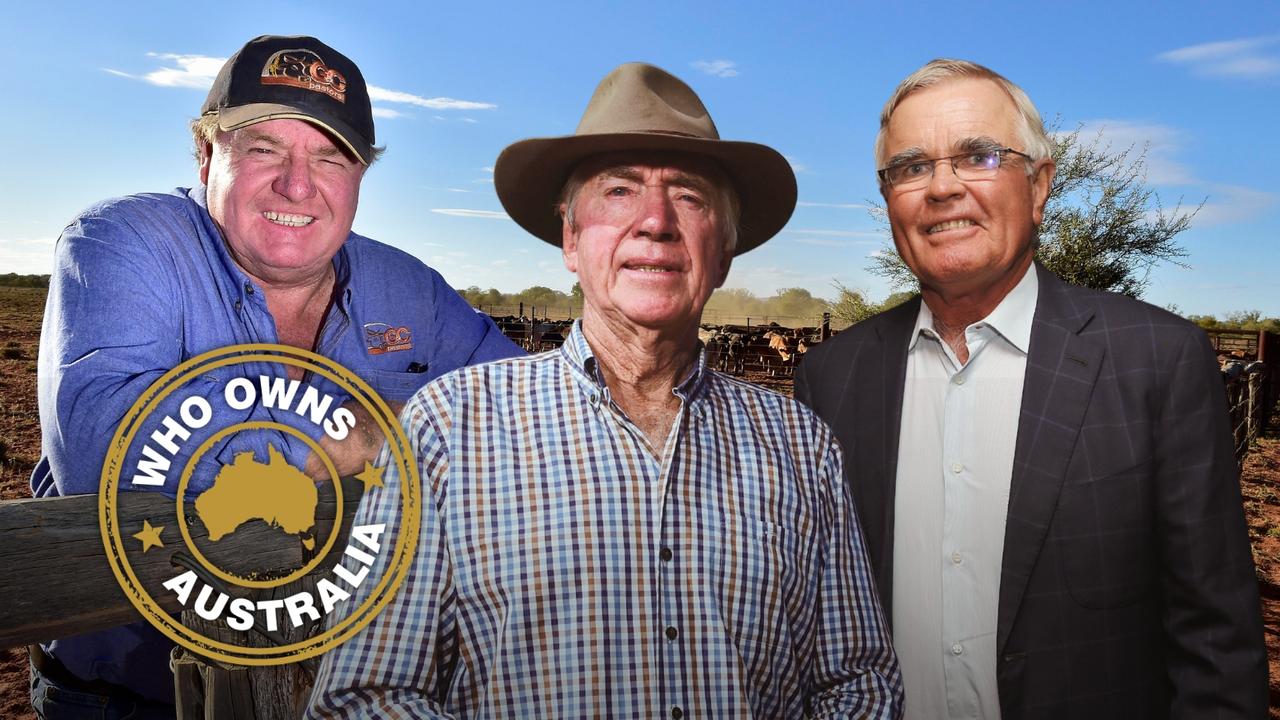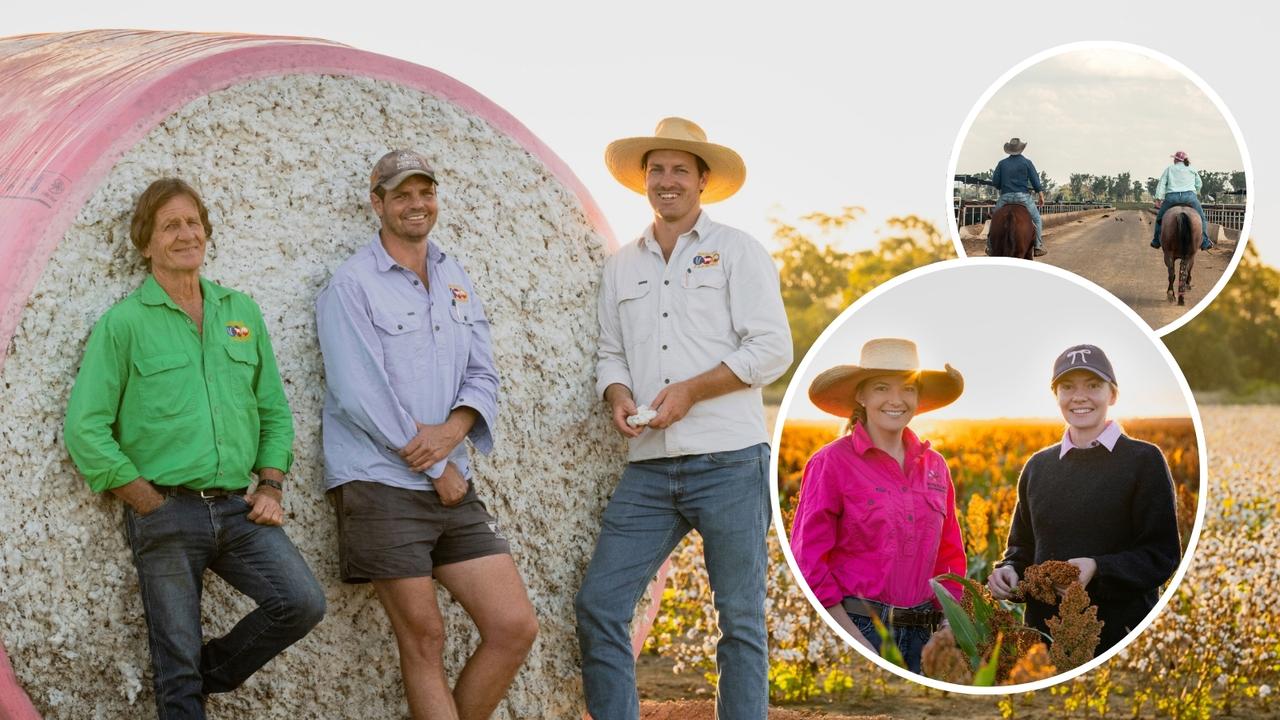Fowles Wine are conducting a new pest control trial
Embracing the power of nature and surrendering to its chaos is paying dividends for lawyer-turned-wine boss Matt Fowles.
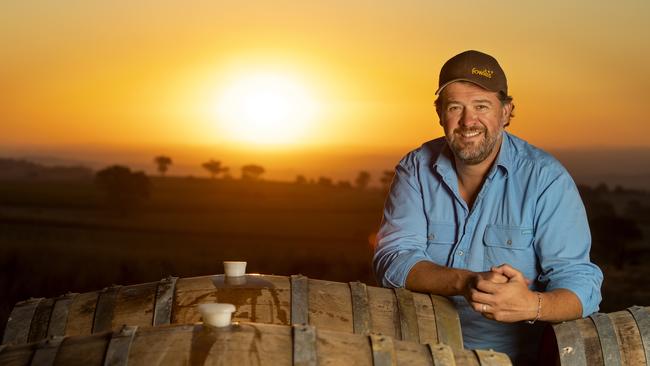
Nestled in the hills of Victoria’s stunning Strathbogie Ranges, Fowles Wine operates with a simple philosophy. “To farm in nature’s image”.
In an environment that is different to what you might expect from a world-class wine producer, the combination of an ancient, granite-filled soil, a higher elevation, and an owner and team that embrace the biodiversity of their land has seen Fowles Wine become a consistent feature in award-winning wine.
And it is the “unusual” nature of the growing conditions that owner and operator Matt Fowles is absolutely embracing.
“We’ve been lucky enough to have many international wine journalists from all over the world come to visit here, I always ask them “does this place remind you of anywhere?,” Fowles says. “And I’ve never had anyone say that it does.”
While acknowledging that “unique” is perhaps the most overused word in the wine industry, Matt says the Strathbogie region is possibly unique, but certainly remarkable.
More than 120 hectares of vineyards with elevations bordering on alpine levels at around 500 metres means that higher winds strip moisture off the vines, resulting in a very low disease pressure, while being north of the Great Dividing Range means Fowles receives relatively low summer rainfall.
Additionally, a scarcity of nutrients in the weathered, ancient soil causes the vines to struggle, thus putting their effort into growing their seed as a means of survival. This means spending less time growing canopy, and more time growing fruit.
“These are all the different attributes that contribute to the quality in the wine,” Fowles says.
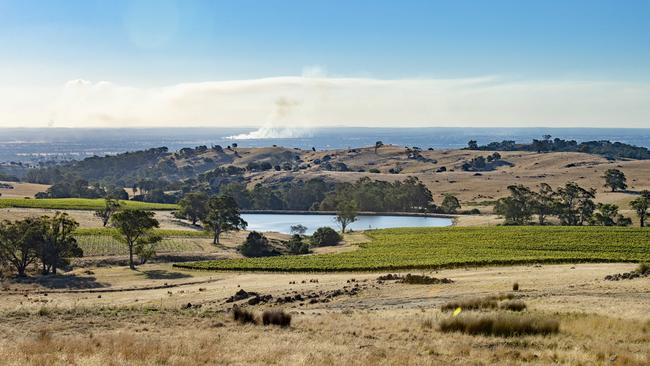
Trained as a lawyer and growing up in Melbourne’s inner city in Hawthorn, Fowles’ love of nature has been a consistent feature throughout his life.
“I was the kid outside catching bugs, lizards, dragging gum trees into my bedroom to feel like I was in the bush,” he says.
After considering moving overseas to the big metropolises of London or New York with his wife Luise, an opportunity to buy a broke winery came up in 2005, and in 2006, they ended up moving to the small town of Avenel in the Shire of Strathbogie.
Now with daughters Lilli, 13, Mathilda, 7, and Ella, 6 also in the picture, Fowles says the move was a “swift change”.
“We had (New York and London) on the table, and the thing that makes me laugh is that we ended up in Avenel, which we love, but it’s not New York, it’s not a London,” he says.
“I think it was 700 people at the time.”
And while Fowles Wine is certainly enjoying the fruits of their labour right now, it definitely wasn’t smooth sailing from the get go.
Reflecting on the early days, Fowles is succinct in his recollection.
“I think I’ve described it as Mother Nature kicking the sh-t out of us for four years,” he says.
“The year 2006 was tough because we were late to it. ’07 was smoky, ’08 was record heat, ’09 was smoky, then 2010 was beautiful. It’s still my favourite vintage.
“And then 2011, we couldn’t make one red it was that wet. She kicked the sh-t out of us one more time to remind us who is boss.”
Since 2012, the business has gone through what Fowles describes as a “dream run”, producing about 2500 tonnes of grapes a year for themselves and others, and 100,000 dozen bottles of wine.
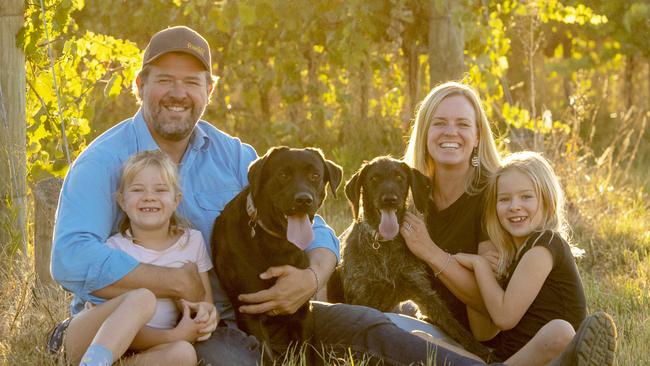
“To farm in nature’s image” is their business mantra, and with a background in soil science from his university days, finding out just how productive a thriving flora and fauna population can be for the vineyard is a key goal for Fowles.
In the past six months, Fowles has partnered with the University of New England for a groundbreaking study of insect-eating micro-bats as a possible non-chemical solution to vineyard pest control.
After having coming across research looking at pest control by bats in cotton farms, Fowles wondered if his own small population of micro-bats in the vineyard were doing the same thing.
He’d noticed the vines and fruit where the micro-bats population was present tended to thrive more, so he got in contact with researchers at UNE to set up a trial.
“Every day, the bats can consume 30 to 100 per cent of their body mass. A colony of 100 bats, weighing 10 grams each, could remove up to one kilo of insects every night,” Fowles says.
Dr Zenon Czenze, who is undertaking the research with colleague Dr Heidi Kolkert at UNE, says the ‘Bats and Wine’ initiative, which began in smaller vineyards in NSW, was borne over a glass of wine between the pair.
“Heidi is an expert in pest control in cotton, and we were chatting and having a look to see if that pest control was also happening in other crops?” he said.
“We were drinking wine and thought, ‘why not look at vineyards to see if similar type of pest control is happening’.”
Undertaking preliminary research in the New England Tablelands, Czenze and Kolkert’s results suggested that bats did play a vital role in controlling agricultural pests within vineyard ecosystems.
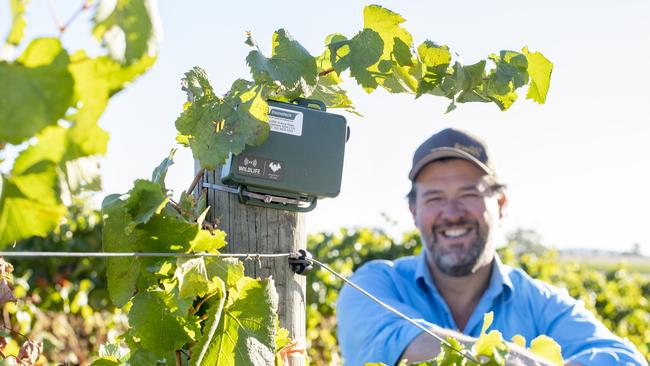
The partnership with Fowles represents a leap forward in this research, and with more than a dozen acoustic detectors spread throughout the vineyard, the Fowles trial will be the largest and most extensive bat monitoring project conducted in a vineyard ecosystem in Australia.
Czenze said he hopes this research can further a path into effective pest control without the use of harmful chemicals on the environment.
“If we can show with strong data and evidence that bats indeed have a pest control effect in all of these habitats, we can go to growers and suggest that instead of relying on harmful chemicals and pesticides, if you can protect the native forest or bush that surrounds the vineyards, you can potentially create better habitats for bats,” he says.
“Hopefully we can change the paradigm of these farming practices so that they becomes more sustainable and even regenerative.”
The regenerative versus sustainable discussion is one that has peaked Fowles’ interest as well.
“When people talk about sustainable farming, is sustaining what we already have enough? What are we doing to promote and build and grow and better our environment?” he says.
“I’m definitely in the regenerative mindset.”
This mindset and a desire to promote biodiversity both on the winery and in the environment beyond has led Fowles Wine to partner with the Euroa Arboretum, a centre focused on ecological restoration and stewardship.
By establishing insectariums on the vineyard, Fowles is attracting diverse predator and pollinator insect life, adding a diversity of native plants in and around the vines furthering growth and ensuring a natural balance.
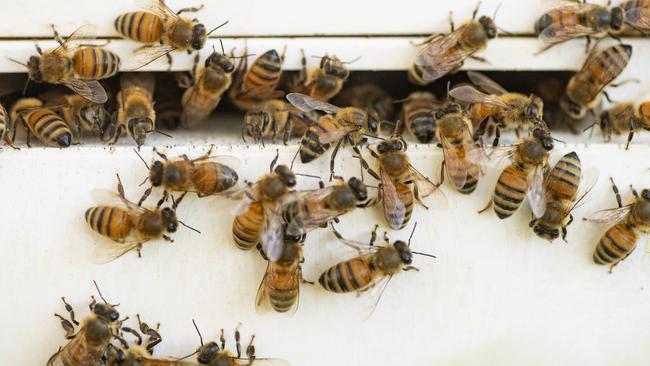
The added benefit is that the insectariums will allow Euroa Arboretum to collect seed that can be used to regenerate native plant life that face threats from bushfires in regional Victoria.
Acknowledging that inviting insects into the vineyard is “very different” from traditional wine growing practices, Fowles says it furthers the ambition he and his team have for embracing everything around them.
“At the end of the day, nature always wins, so why fight against it when you can work with it. There is a purpose for everything that our environment provides. The different species of grass that grow beneath our vines provide sun protection to the soil, the moths are food for the bats, the bees pollinate our local flora,” he says.
“The human eye likes repetition and order, which is part of the reason we traditionally try to maintain our surrounding environment. At Fowles we work with the chaos that naturally arises and mirrors the likes of our Australian bush.”
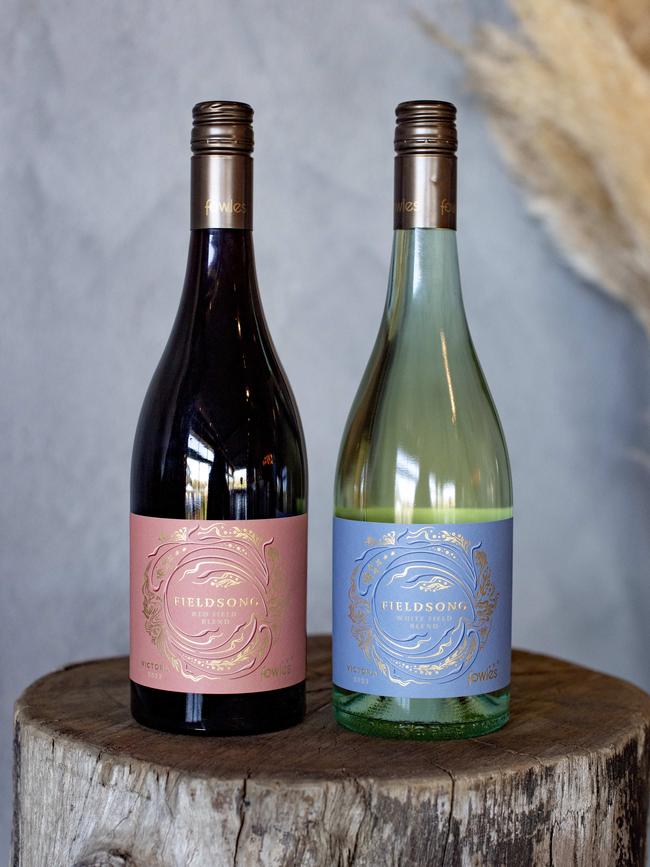
The chaos of the bush is what has influenced their sixth and most recently released vintage – Fieldsong.
With Australian consumers and producers often interested in single variety wine, this field blend goes against the grain, and is made up of seven different varieties from the vineyard.
With a very complex but fresh taste, and a lower alcohol content, this project has been a favourite of Fowles’, and embodies his vision of working with the world around him.
“What I’d liken it to is like honey. So if bees go out and forage all these different plants and bring it in, it’s a representation of everything that’s out there,” he says.
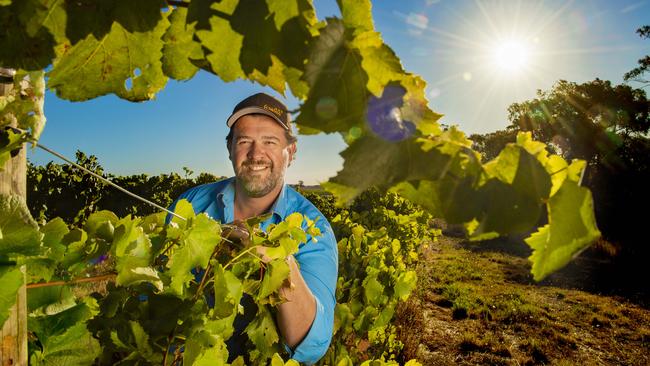
‘Everything that’s out there’ is the key to Fowles’ success.
It does all the things you’d expect of a responsible agriculture business. They use solar panels, have efficient water resource utilisation and feed the food waste from their restaurant to their chooks. But it’s that next step in embracing the biodiversity of its environment and an introspective reflection on who Fowles wanted to be as a person that has put the dream in overdrive.
“Obviously it’s extremely important to do those responsible things, but I felt like what is really my No.1 passion. What do I want to stand for? And I really settled on the space of biodiversity,” he says.
“Our main priority is not yield, it’s about embracing the power of nature and surrendering to the chaos and seeing the incredible quality that it brings.”
As for what’s next for Fowles Wines, like many other businesses they are still resettling after Covid, and Fowles knows that while the world has changed in many respects, at the same time, nature still carries on.
“I reckon we’ll increase our clonal diversity, we’ll plant more clones of the varieties that we like, and plant more varieties,” he says.
“We’re really at the start of this biodiversity thing. Everything I’m seeing with the stuff we’re doing says to me intuitively that we should go harder in this direction.
“I can’t wait to continue pushing the boundaries in that regard.”



